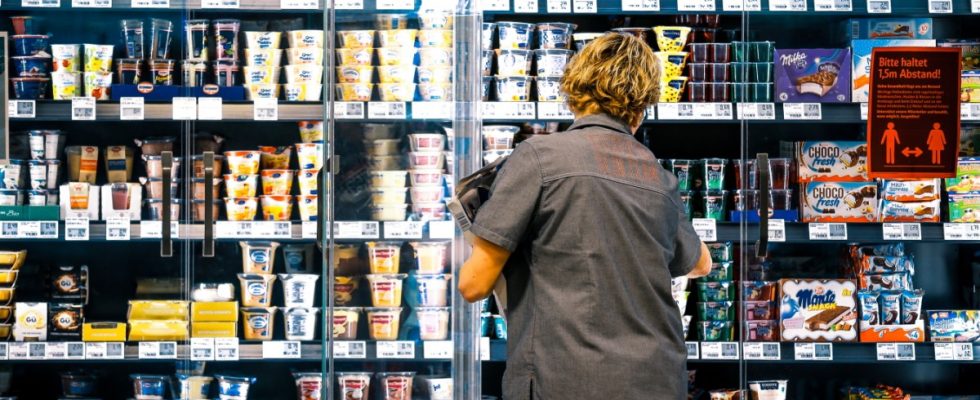They are ready at Edeka’s headquarters: stickers and labels that the food company could use to warn its customers about shrinkflation on the shelves. Shrinkflation is a neologism shrink and inflation. This describes a particularly annoying phenomenon for customers: the contents of the packaging shrink (shrink), the price remains the same or increases (inflation). In such a way that the consumer hardly notices it.
One of these warning signs is circular, as big as the lid of a can and has bright red lettering. It says: “The contents of the product have been reduced by the manufacturer and the price has been increased.” The dealer actually sets the price. But for Edeka, the manufacturers are the culprits, such as Nestlé, Mondelez or Unilever. The circular price pillory has tens of thousands of likes on Instagram. “Every supermarket should have this,” it says at the top. But almost no one has it.
In mid-November, the consumer organization Foodwatch randomly asked 50 Edeka branches across Germany whether they informed their customers about shrinkflation on the shelf. The result: “Not a single supermarket said yes, the majority of the markets didn’t even know anything about the headquarters’ plan,” said a Foodwatch spokeswoman. Eight markets fundamentally rejected the proposal.
A pure “image campaign”?
At the request of the South German newspaper Edeka admitted that it unfortunately did not know which of the independent merchants took up these templates. Edeka is a cooperative association supported by around 3,500 independent merchants. They could decide on all business issues themselves. From Edeka’s point of view, a selection of 50 supermarkets is not representative.
Edeka publicly stated for the first time in September that it wanted to warn about hidden price increases on the shelves. Carrefour in France has been doing this for a long time. Armin Valet from the Hamburg consumer advice center, which has been presenting the “deceptive package of the month” for years, suspected that it was just Edeka’s “image campaign”. Foodwatch expert Manuel Wiemann now sees the assumption confirmed and speaks of a “pure PR stunt”.
But is that true? According to Edeka, the discounter belonging to the group Netto Marken-Discount notes on shrinkflation already tested in many Netto branches in different regions and received positive feedback from customers. However, neither Edeka nor Netto provide information on the number of branches or duration of use. And spicy: Be on Hamburg’s deceptive packaging list currently four Edeka own food brands listed.
Foodwatch is calling on the federal government to introduce a labeling requirement for shrinkflation. The organization has initiated a petition about this. Tens of thousands are said to have already signed. According to a survey, almost all German citizens are in favor of identifying hidden price increases.

